Wrist Proprioception Intervention Ideas: By Ammie Ingwaldson
Lack of wrist proprioception exercises can affect clients in the hand therapy setting with neurological and musculoskeletal conditions. Proprioception limitations are found in common conditions such as carpal tunnel syndrome, distal radius fracture, and CRPS (Valdes, Naughton & Algar, 2014). Proprioception is necessary during daily tasks to provide joint control and stability through conscious and unconscious effort (Hagert, 2010). The following intervention ideas can be used to facilitate wrist proprioception. These products are not affiliated with Hand Therapy Partners, links to outside vendors are provided below. These products can be used for various hand proprioception exercises.
Ball in a Cup
Place small rubber or metal balls cup that can be held comfortably in one hand. The goal of the activity is to roll the balls clockwise and counter clockwise by just moving the wrist. The client’s elbow should be stabilized to isolate the wrist (Valdes, Naughton & Algar, 2014).
Powerball
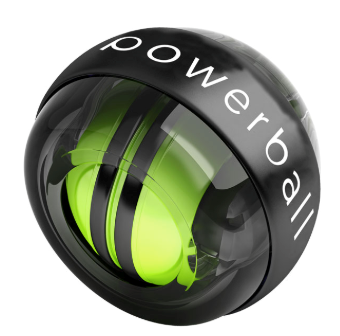
The Powerball is a gyroscope that exerts multidirectional inertia for the muscles of the wrist joint (Hagert, 2010). The ball is wound within the device to start, then the patient must use the tactile feedback from the ball to maintain and increase the speed of the inner ball. The Powerball can also be useful for building muscle endurance for the wrist and hand.
Wooden disk stacker
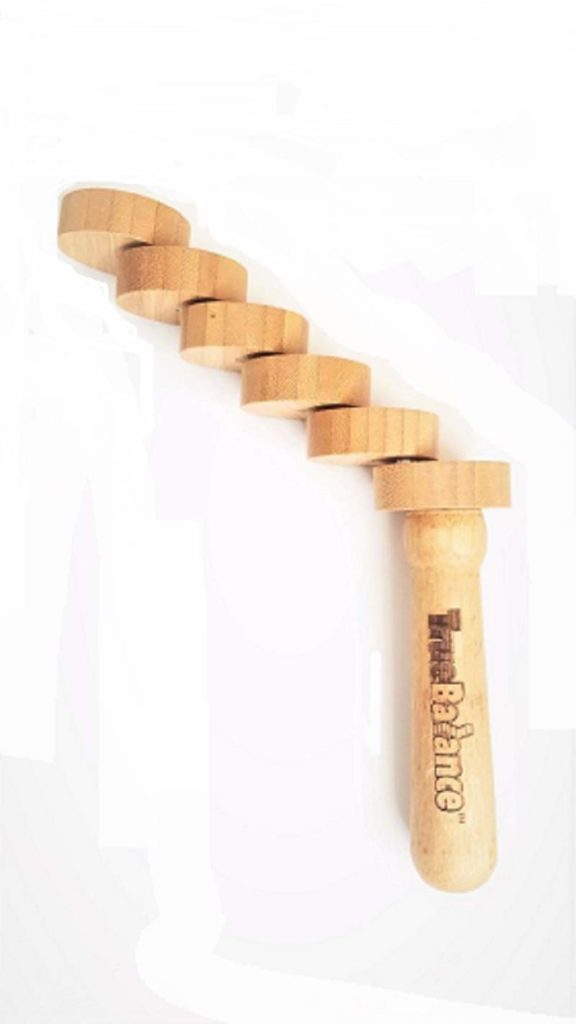
This activity is a favorite at our clinic. This seemingly simple toy provides patients with the challenge of stacking wooden disks with slight wrist motions and sustained grasp on the handle.
Smart phone applications
Smartphone applications, such as Labyrinth, require wrist proprioception and coordinated response from the patient (Algar, Valdes, 2014). The applications can be used to facilitate active wrist movement, proprioception, and wrist range of motion.
Balance exercise on ball
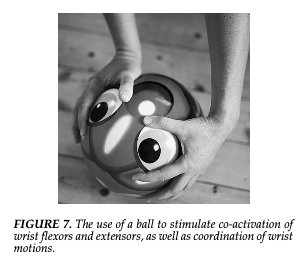
This activity requires slow and controlled responses of the patient to balance with both hands on a ball. The sustained balance on the ball requires simultaneous use of the flexors and extensors of the wrist while weight bearing through the upper extremities (Hagert, 2010).
References
Algar, L., & Valdes, K. (2014). Using smartphone applications as hand therapy interventions. Journal of Hand Therapy, 27(3), 254-257. http://dx.doi.org/10.1016/j.jht.2013.12.009
Hagert, E. (2010). Proprioception of the wrist joint: a review of current concepts and possible implications on the rehabilitation of the wrist. Journal of Hand Therapy, 23(1), 2-17. doi:10.1016/j.jht.2009.09.008
Valdes, K., Naughton, N., & Algar, L. (2014). Sensorimotor interventions and assessments for the hand and wrist: a scoping review. Journal of Hand Therapy, 27(4), 272-286. http://dx.doi.org/10.1016/j.jht.2014.07.002
Product links
Powerball
https://powerballs.com/shop/powerball-280-autostart-classic
Wooden disk stacker
Smart phone applications
4 Comments
Leave a Comment
More To Read
How to Get Started in Hand Therapy
I started OT school knowing that I wanted to do pediatrics. I set up everything to build up my resume for my first therapy job to be in pediatrics. Along the way I had a 3 month clinical rotation in hand therapy at Mayo Clinic in Scottsdale. That experience peaked my interest in hands. 13…
Read MoreCarpal Tunnel Treatment: Splinting Only vs Splinting & Conservative Treatment
Short-term clinical outcome of orthosis alone vs combination of orthosis, nerve, and tendon gliding exercises and ultrasound therapy for treatment of carpal tunnel syndrome. Sim, Sze En et al. Journal of Hand Therapy, Volume 32, Issue 4, 411 – 416 The Skinny- Carpal tunnel syndrome (CTS) is the most common compression neuropathy. Compression of the…
Read MoreSensory Processing in People With and Without Tendinopathy
Emilee Sanders, OTS Sensory Processing in People With and Without Tendinopathy: A Systematic Review With Meta-analysis of Local, Regional, and Remote Sites in Upper- and Lower-Limb Conditions Rio, E, Sandler, J., Cheng, K., Moseley, G. L., Cook, J., & Girdwood, M. (2021) Sensory processing in people with and without tendinopathy: A systematic review with meta-analysis…
Read MoreSign-up to Get Updates Straight to Your Inbox!
Sign up with us and we will send you regular blog posts on everything hand therapy, notices every time we upload new videos and tutorials, along with handout, protocols, and other useful information.

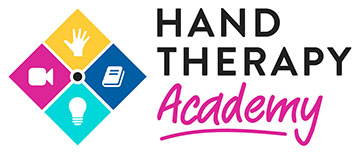
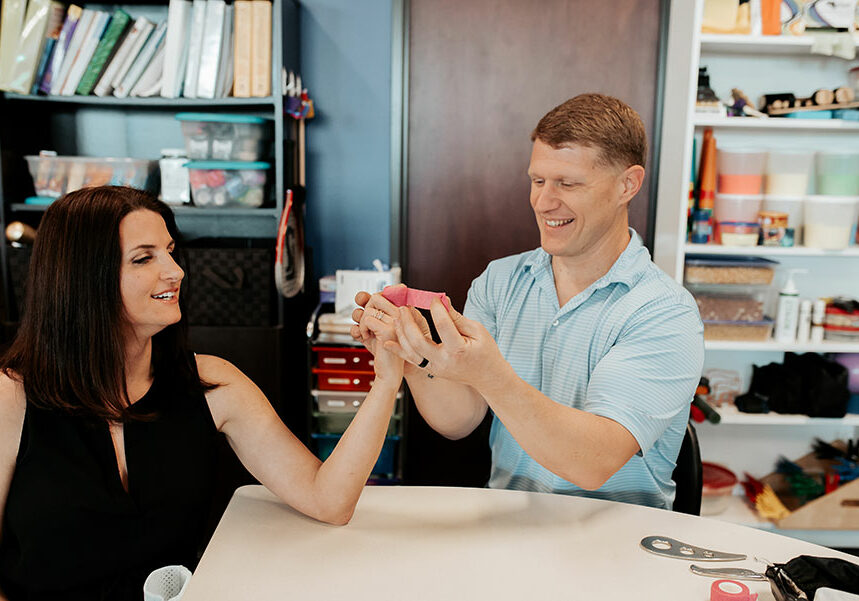



What position is the pt in for tha balance on a ball exercise?
Love these ideas! Thanks
Debbie
You can grade the activity.
The easiest being the ball on a table
second would be on the wall
and 3rd would be on the floor with the patient prone
good afternoon!
where can I buy these two equipments to deliver in Brazil.
thanks!
Emília Póvoas
amazon